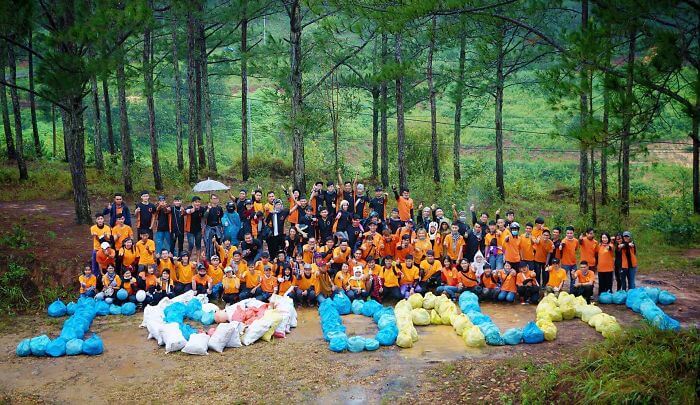The internet has been a host to a variety of online challenges over the years. While some of them where quite entertaining, but oftentimes dangerous (i.e. cinnamon challenge, mannequin challenge and Kiki challenge) others had a bigger incentive, as for example the ice bucket challenge which aimed to promote awareness for the ALS disease.
Unlike many of its predecessors, the latest viral internet trend is dedicated to bringing about a positive force of change. The #Trashtag challenge encourages people to clean up places littered with garbage. Partakers then take before and after photos of the spots revealing the shocking difference and sharing them online.

The challenge was initially introduced by outdoor company UCO Gear in 2015 but the movement only gained momentum over the past few weeks after a reddit user posted a photo of someone who had completed the challenge with the caption: “Here is a new #challenge for all you bored teens. Take a photo of an area that needs some cleaning or maintenance then take a photo after you have done something about it, and post it here.”
Ever since then, the challenge has taken off on a global scale with tens of thousands participants. Instagram alone has had over 58,000 posts uploaded with the tags #trashtag, #trashtagchallenge and #trashchallenge. As a result beaches, road sides, forests, and nature trails, are being left cleaner than before. In one case, 40 Norwegian Folk High School students from Alta spent one-week picking trash at a local beach. The end result was a whooping total of 12,400kg of litter being cleared from the beach.

The increasing popularity of the challenge not only highlights the consistent pollution of natural reserves but also people’s growing awareness. As schools, organisations and companies form united fronts in a bid to clean up sites marred by litter, the movement has grown beyond the realm of an internet challenge, morphing into an environmental crusade. Consequently, this challenge has revealed a much more positive side of social media, showing how impactful a movement can be.
In the UK, the ‘litter crisis’ is costing the government nearly £1 billion per annum to address increasing pollution rates. This then raises the question, what would happen if people cleaned-up after themselves? Although the #trashtag posts have exposed the harmful human footprint, they have also revealed a growing number of people willing to tackle the problem, leaving spaces cleaner than before.
If you would like to be part of the challenge, you can head to www.littergram.co.uk. A website that offers an app where city councils can mark down littered areas and help participants clean-up.
For further inspiration head here.






